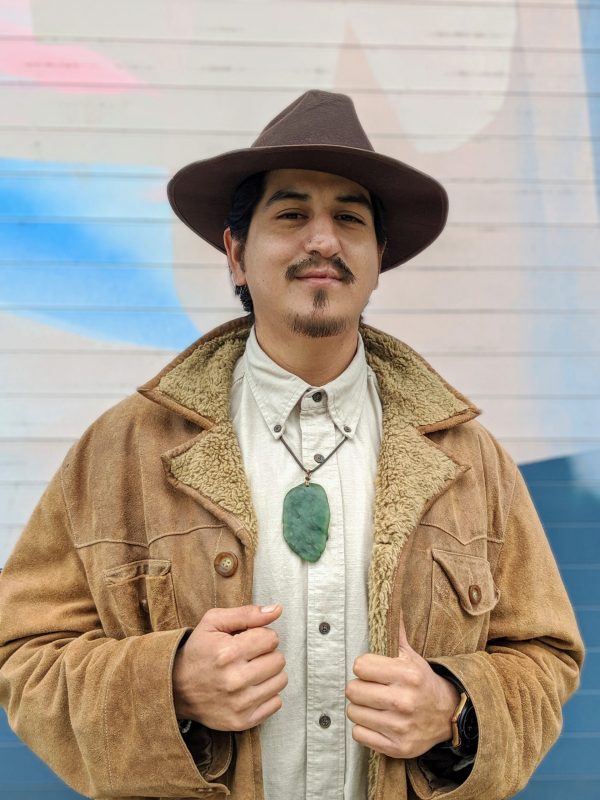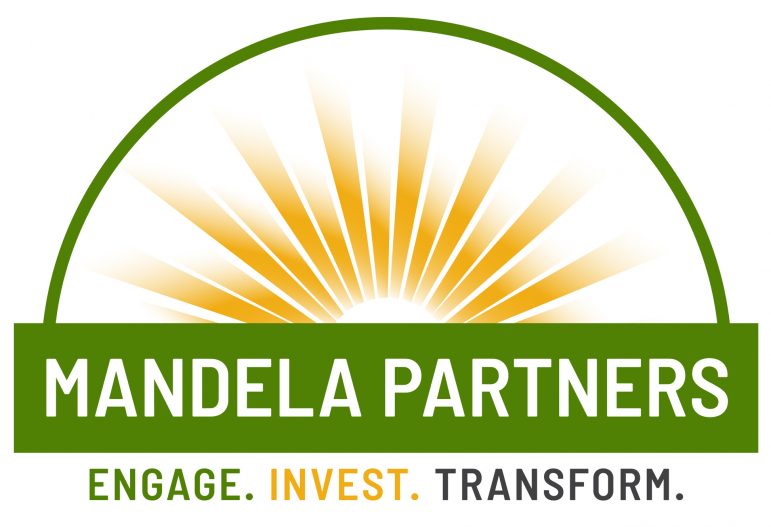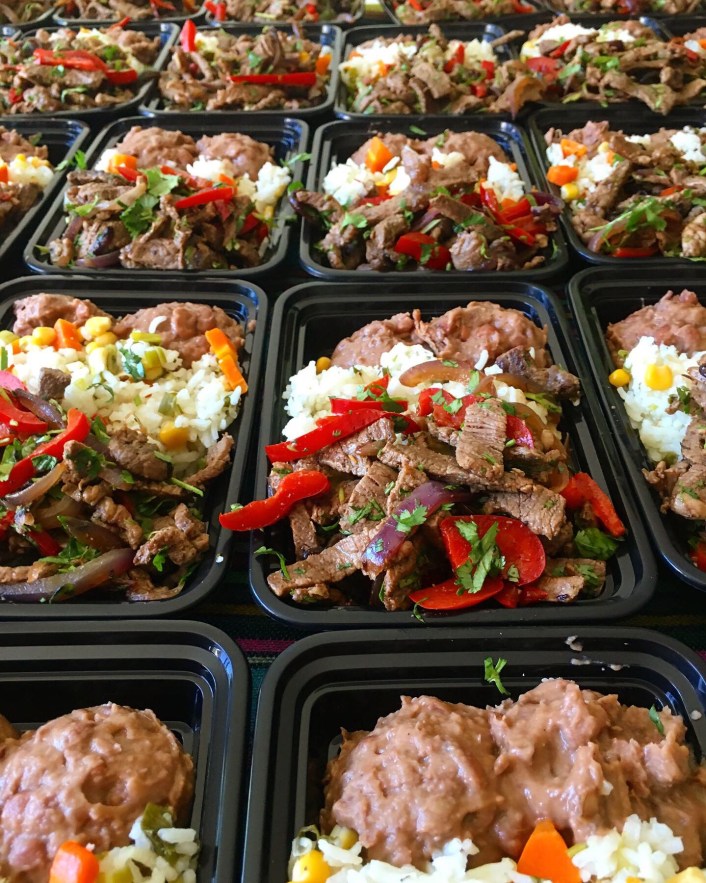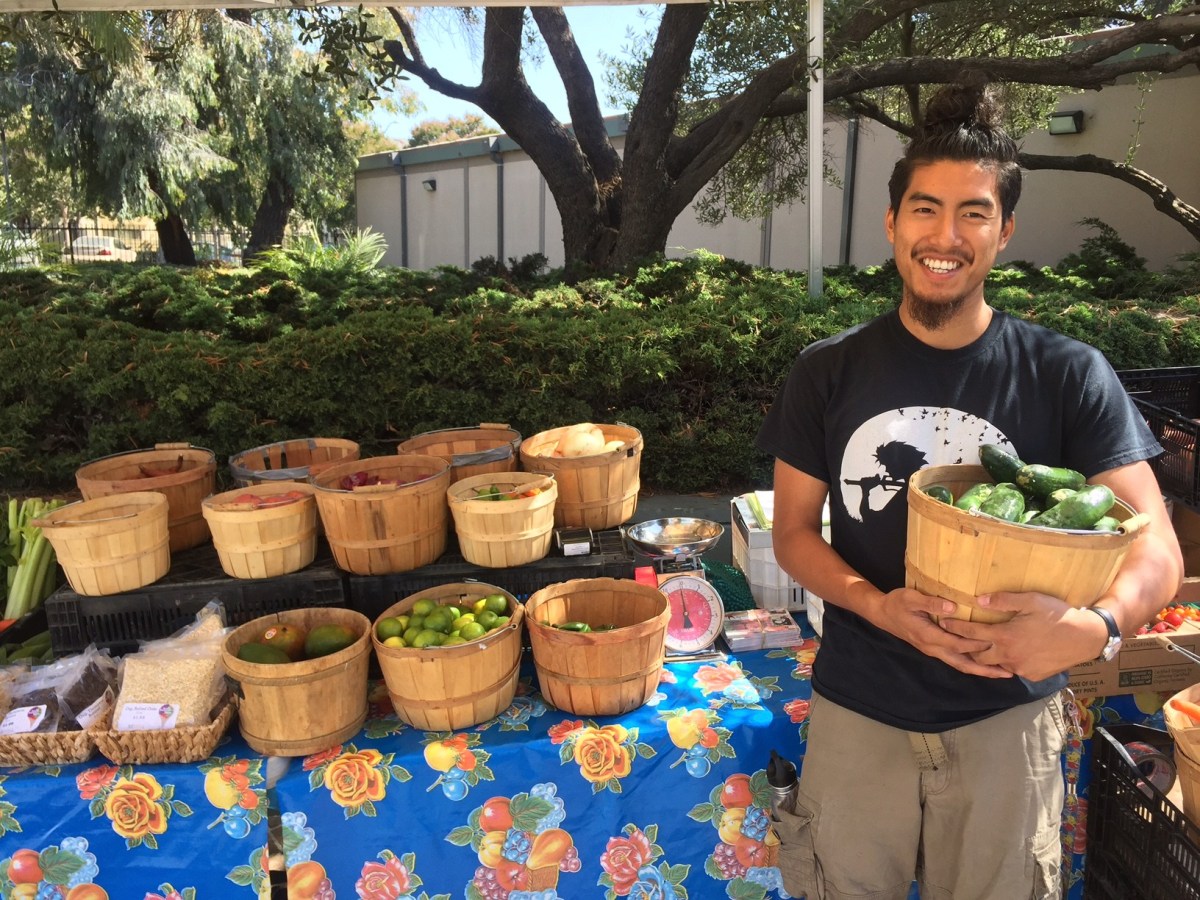In the early days of quarantine, chef Enrique Soriano found himself in a pickle.
The pandemic had all but eliminated business for his catering company, Cocina del Corazón, which he had started in 2019 to help finance pro bono food donations. He and his business partner applied for grants and tried to start up a delivery service, but neither panned out. Scrambling for sustainable solutions felt “like building a car from scratch.”

Then, after putting and re-putting out feelers to local organizations, he found the tools for that car with Mandela Partners, a West Oakland-based food nonprofit. For over a decade, Mandela has provided a series of bridges between food resources and the communities lacking them — sourcing wholesale produce from immigrant and BIPOC farmers, orchestrating local food stands and incubating BIPOC-owned food businesses.
Mandela Partners’ Programs and Policy Director Ciara Segura said the organization was founded to address the two-headed beast of food insecurity and lack of community equity.
“West Oakland for a long time has been told about all their problems and struggles without a lot of follow through that was community driven,” Segura said. “This has been a community that has been harvested for data, but the solution making was not happening … Since our inception 15 years ago, we have worked to identify and move forward solutions identified by residents.”
Hunger is often called an invisible disparity, though its impact is manifest in many ways: life expectancy, quality of life, the pleasure and communities we build around food. Data from the national hunger relief organization Feeding America suggest nearly 10 percent of Alameda County, more than 150,000 people, experienced food insecurity before the onset of the pandemic. More recent data from the California Food Banks and the U.S. Census indicate that number has grown.
Mandela’s approach is rooted in providing jobs and capital to the community over time, with numerous new initiatives launching over the last six years.
Since its founding, the organization has distributed more than 1 million pounds of food, hosted comprehensive business workshops for more than 80 entrepreneurs within East and West Oakland, facilitated access to almost half a million dollars in capital, incubated eight businesses and launched both an independent grocery store and a produce distributor.
Among Mandela’s most recent ventures is Oak Harvest Kitchen, an Oakland-based restaurant that provides job training and employment assistance to former inmates, as well as San Leandro-based Ashland Market & Cafe, a retail space that provides entry level experience for would-be entrepreneurs.
Both of these operations have struggled during the pandemic.

“Revenue and sales streams have been impacted dramatically,” Segura said. “Oak Harvest Kitchen relied on catering, which was hugely impacted, and (Ashland Market & Cafe) sales are down.”
But thanks to funding from the CARES Act and contracts with Alameda County, the businesses under Mandela’s mentorship, including new partners like Cocina del Corazón, have been able to supplement income by making and distributing meals to more than a dozen community sites, including the CALMA Day Laborer Outreach Program, the Berkeley Food & Housing Project and churches.
“We’re still really busy, since the need is a lot more expansive than a year ago,” said Segura, who is finding that more seniors, more congregations and more unhoused people all need help. “Our hope is we can focus more on identifying the people we’re serving. I am very excited to continue to grow that.”

Cocina del Corazón’s Soriano knows from personal experience how tough things can get. Born in Los Angeles, Soriano’s parents picked fruit “at the mercy of weather and mayordomos” before they settled in Oakland when he was three. Although things improved for the family in the Bay Area, Soriano grew up knowing that not every meal is guaranteed.
“I experienced how it is to be food insecure,” said Soriano, who remembers as a young student relying on school lunches and food programs from The Salvation Army.
After graduating, Soriano was able to enter the world of fine dining in San Francisco and Big Sur and make a good living. But serving high-quality food that only the elite could afford began to wear on him.
“I felt like I was losing my soul,” he recalled. “These people eating these fine foods, I felt like they didn’t care, and the people that need it most don’t have access to this.”
So Soriano and a partner founded Cocina, and now — thanks to a helping hand from Mandela Partners — the business is helping to finance as many as 700 free meals a week.
“This is the best thing I’ve ever done, to make food for the community,” Soriano said. “I’ve been on that receiving end. When you’re super down, and you taste something really good, it warms you up. Food is medicine.”
